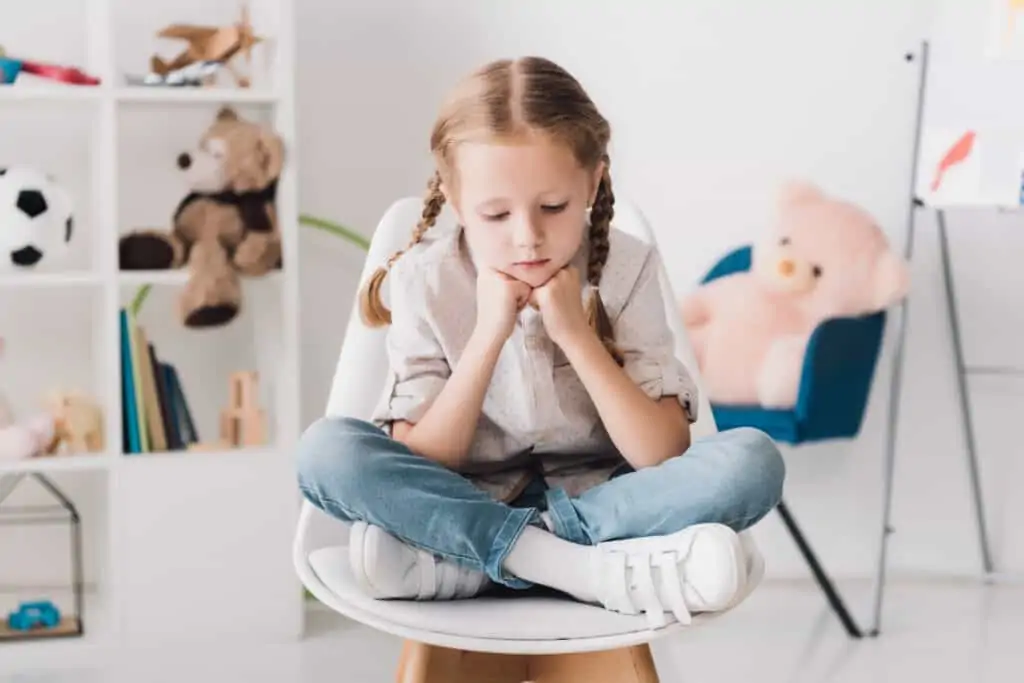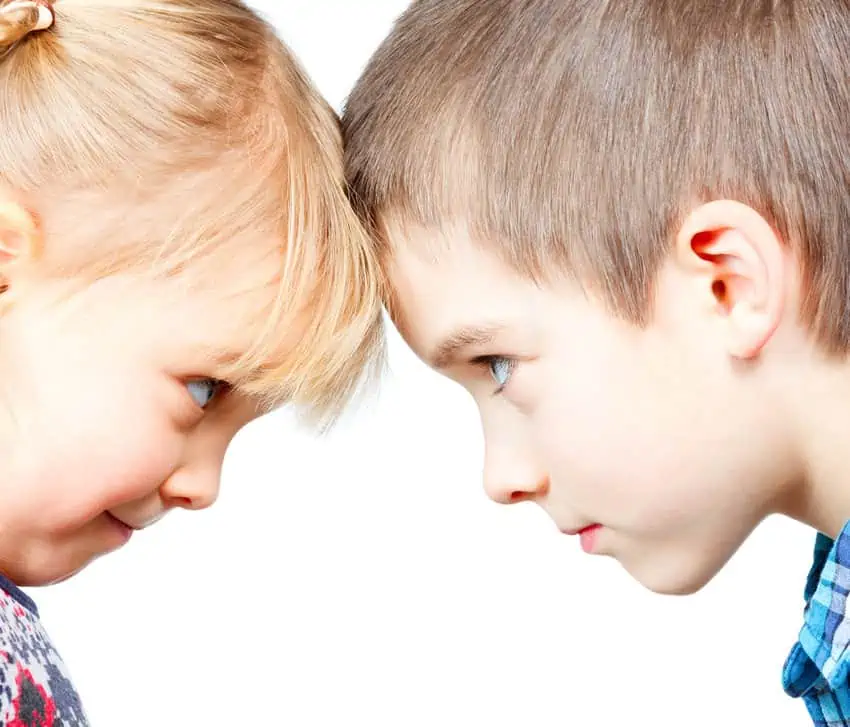Inside This Post: We all get angry from time to time. New & awesome tips to help you stop yelling when angry at your kids & how to catch yourself before you lose your temper. Ready to take the leap and BIG changes? The beginner’s guide to stop yelling is the perfect place to begin.



When Exactly Did I Turn Into an Angry Mom?
It’s 10 minutes before I need to be out the door and I tell the kids, “get your shoes and jackets on,” and then continue to rush around putting everything I need in my purse, swipe on some mascara and top off my coffee mug so I don’t look like I’m homeless heading into work. 2 Minutes before we needed to be out the door and buckled in the car, and I look up to see all three kids tossing balloons into the air in the living room – barefoot and jacket less. Then, to add to my frustration, I look around and notice their cereal bowls still on the table and not in the sink like they’re supposed to be, the dog is whining to go outside… again… and late for school by the look of it. That’s when it happens. My hands clench. I grit my teeth. And I yell. “I said get your shoes and jacket on NOW!” When my four-year-old whispered as she ran past me, “you’re a mean Mommy” under her breath, I could no longer hold back my tears. Partly because I know she’s right, and partly because I was already regretting my harsh reaction. This moment is seared into my memory and part of why I work hard to change how I parent. No matter how much I want to stay calm and be in control of my temper, it’s not a snap your fingers and it’s fixed remedy. In fact, it’s not an easy journey at all, but because I chose to make our home, my heart, and how I treat my children a safe place for them at all times, it’s a journey worth being challenged by and working through, each day. I know I can’t let my feelings damage everything and everyone I love, even a little.How Do I Stop Yelling At My Kids?
Parenting is a wild, unpredictable ride. Some days, you’re channeling your inner zen, while other days… well, you’re asking yourself, “Did I really just scream because my kid won’t put on socks?” We’ve all been there. Life happens, and even the most well-meaning, loving parent can hit the tipping point. But if you’re reading this, you’re likely asking a critical question: “How do I stop yelling at my kids?” It’s a struggle many parents face, and the good news is that you’re not alone, and even better, change is possible. Yelling at our kids isn’t something we want to do. In fact, we often feel immediate regret afterward. Yet, the pressures of day-to-day life—work, chores, never-ending to-do lists, and the chaos that comes with raising tiny humans—can make staying calm feel like a Herculean task. Let’s be honest, sometimes your child’s request for the “purple cup, not the blue one” can feel like a direct attack on your last nerve. But here’s the thing—yelling isn’t helping anyone. It doesn’t solve problems, it doesn’t teach better behavior, and most importantly, it doesn’t create the kind of nurturing connection you’re striving for as a parent. The research is clear: kids respond better to calm, consistent communication. And while this sounds great in theory, executing it in the heat of the moment is a whole different story. So, where do you start? Let’s break it down into practical, real-world tips to stop yelling, manage your triggers, and build healthier responses for you and your kids. It’s time to trade the yelling for something more positive and productive, while giving yourself a break in the process.Recognizing Triggers That Make You Feel Angry
Before we even talk about how to stop yelling, we need to identify why we yell. Is it the noise? The constant interruptions? Is it that the dishwasher wasn’t loaded the “right” way again? Figuring out your triggers is like figuring out where the leaks are coming from in a sinking boat — you can’t stop the flood until you patch the holes. Once you know what sets you off, you can work on managing your response. One method is creating mental or physical space between you and the trigger. For example, when you start to feel your blood boiling, take a deep breath, count to ten, or step out of the room for a minute to cool off. Let the initial burst of anger pass before reacting. You’ll be amazed at how much a little pause can change your entire approach to the situation. Once you get familiar with recognizing your triggers then you can begin to be aware of how your body reacts so you have two ways to perceive how your environment is affecting you. Your body will give you clues BEFORE you even recognize you’re getting upset. Signs You’re Getting Worked Up:- Clenched fists
- Grinding teeth
- Biting your lip
- Fidgety
- Bouncing your knee
- Quickening pulse
- Face flushing

Feelings Drive Your Reaction
Neuroscientist Antonio Damasio, author of Descartes’ Error: Emotion, Reason and the Human Brain, says it’s our feelings that decide for us, 95% of the time. We feel before we think. We feel before we act. He describes human feelings by saying, “We are not thinking machines. We are feeling machines that think.” Since ultimately, we make decisions based on how we feel, it’s important for parents to be aware of their feelings. To tune into the body’s reaction to triggers and alert our brains of the flashing red light that we need to press pause. Otherwise, we will lead with our feelings of anger and react in a way thats unlike the parent we want to be.Lowering Expectations
Let’s face it—kids aren’t going to be perfect, and neither are we. Sometimes, we yell because we expect too much. We expect them to listen the first time (or even the fifth). We expect them to always share, be polite, and clean up after themselves. But kids are still learning; they’re going to make mistakes, and sometimes, they’ll act out. Lowering your expectations doesn’t mean accepting bad behavior; it just means understanding that setbacks happen. If we adjust our mindset to accept that misbehavior is a normal part of childhood, it takes the edge off when it happens. Instead of feeling angry, we feel prepared.The Power of a Reset Button
You’re in the middle of a meltdown—yours or your kid’s—and you feel the yell coming. One way to immediately stop yourself is to use a reset button. This can be anything that jolts you out of the moment—clap your hands, stomp your feet, or even say something silly like “bananas” out loud. This small action disrupts your reaction pattern and gives you a second to regain control. Sure, it might sound silly, but sometimes adding a little humor or surprise can be just what you need to shift the atmosphere from tension to relief.Model the Behavior You Want to See
Kids are sponges. They soak up everything we do and say—so if we’re yelling, guess what they’re going to do? Instead of shouting when they’re acting up, model calm, measured responses. This might be the hardest tip of all because, in the heat of the moment, staying calm can feel impossible. But practicing this consistently will help show your kids that handling frustration can be done without raising voices. Next time your child pushes your buttons, take a deep breath and say, “I’m feeling really frustrated right now, and I need a minute to calm down before I talk about this.” Not only does this give you time to cool off, but it also teaches your child how to recognize and manage their own emotions.Repair After the Yell
Let’s be real: even with the best intentions, there will be times when you lose your cool and yell. You’re human, after all. The key isn’t never yelling again (because, let’s be honest, we’re going to mess up from time to time), but knowing how to repair the connection afterward. Apologize to your child, explain that you were feeling frustrated, and tell them what you’ll do differently next time. This not only helps to heal any hurt feelings but also shows them that even adults make mistakes — and that it’s okay as long as we take responsibility and work to improve.13 Tricks to Try to Stop Yourself on the Spot From Yelling
I want to share with you, a few things to do when you feel like you’re about to lose your temper. This is more than “take a few deep breaths” or “go hide in the closet and eat a bag of chocolate chip cookies.” These tips go beyond that. These are new ideas you can try today to help you stop losing your temper with your kids.- Give your child a 20-second hug. Push your pride aside when you begin to feel angry, and chose to love your child in the moment instead. A 20-second hug has scientifically been shown to reduce blood pressure and heart rate, helping to bring you back to a state of calm.
“A 20-second hug, along with 10 minutes of hand-holding, also reduces the harmful physical effects of stress, including its impact on your blood pressure and heart rate.4 This makes sense, since hugging is known to lower levels of stress hormones like cortisol.”
- Pretend like you’re not alone. Visualize another person like your Mom, best friend or your child’s teacher being in the same room as you. How would you react if they were standing nearby. Probably differently, right? You’ll follow all your parenting rules like responding not reacting, and staying calm, leading with empathy, and talking kindly because others are there to hold you accountable.
- Get down to your child’s level so you look at each other eye-to-eye. When you look into the eyes of your little love, can you imagine raising your voice looking at them in the eye? No, because the thought of yelling at them immediately disappears when you see their eyes staring back at you.
- If your kids are acting out, or not listening, repeat the phrase, “He is just a kid. He’s only (use your child’s age) years old.” This will remind you that they’re only being kids and because they don’t have all the tools like adults do to calm their body, or remember more than one task at a time, it helps you calm down and remember their real age and capabilities.
- Lead with the positive. Start with, “I love you” or “One of the things I love most about you is…” and then address the problem. You can say, “I love you, but I don’t like the choices you’re making right now” or ” One of the things I love most about you is how kind you are, but right now, you aren’t being kind when you say hurtful things to your sister.”
- Change your voice to change the environment. Instead of yelling, whisper what you want your kids to hear or do. You’ll notice that all the noise in the room will quickly stop so your kids can hear what you’re saying. Plus, the calmer you speak to your kids, the more they want to listen and the greater impact your words will have.
- Recognize your triggers. Is it noise, running later, throwing things, not listening, whining that makes you angry? When you see your triggers playing out in front of you, create calm down habits like putting in your air buds to a podcast or stepping outside for two minutes of fresh air. The key is to recognize your triggers, so you can fit it before it escalates to you losing your temper with your kids.
- Pretend like your kids aren’t your own. I know this sounds funny, but if it were your niece or neighbor’s child, would you yell at them for the same thing? Probably not.
- Try squeezing a stress ball (I like to keep one in my car) for when you get upset. They really work and I know therapists suggest them as a distraction tool.
- Talk to your kids about how your feel and why you need a break to cool off. Kid’s learn more from parent’s actions, than their words so modeling emotional intelligence is a good tool for parents and kids!
- Take a time-out for yourself. Walk into another room or step outside for a few minutes to cool down. Then, when you come back with a calm voice, address the problem with your kids.
- Think about what happens after you yell. Sometimes you have to think of the domino effect your yelling will have to stop yourself from going through with it. If you yell at them right now, what are they going to be like the rest of the day, and even, how will they remember you tomorrow, or next week?
- Use Mel Robbin’s method from The 5-Second Rule of counting backwards from 5 to 1, 5-4-3-2-1 to ignite your body to take positive, productive action instead of leading with anger. In summary, your brain gives you five seconds once you recognize you are thinking about taking action or a different course, and in those five seconds, you’ll try to convince yourself from action. Your brain will tell you it’s easy to yell, it’s too hard to calm down or you need to release your frustration, but when you use Mel Robbin’s 5-second rule and count down from 5, once you hit 1, the only thing you need to do is take immediate action (away from yelling.) You can step outside, give your child a hug, turn on music, jump up and down or step away into another room. It doesn’t matter what your action is, as long as the action is to stop yourself from yelling. Her book, The 5 Second Rule, works for all areas of life and this method can help with more than just stopping yourself from yelling too!
Being a Calm Parent Takes Inner Work, Resolve to Change & Practice
By practicing these tips and strategies, you can move toward a calmer, more peaceful household. It won’t happen overnight, but every small step counts. The ultimate goal is to reduce yelling, not eliminate it entirely—after all, we’re all human. What matters is that you’re trying and working towards a healthier dynamic for you and your kids. Parenting is no easy task, but yelling doesn’t have to be your go-to reaction. With a little patience, self-awareness, and practical tools, you can break the yelling cycle and create a calmer environment for your family. Remember: progress, not perfection. The most important thing is that you’re trying, and that alone makes all the difference. Being a calm parent takes work. Our children challenge us and test us almost daily. There’s nothing that feels worse than the look on your child’s face after you explode. Calm Parenting: Learning to Stop Yelling is a book and workbook to help you walk through all the steps of recognizing WHY you’re mad, how to handle your emotions even in the heat of the moment, and develop your own unique coping skills so you can have a healthy relationship with your own feelings, and children. More Resources for Calm Parenting- Stop Power Struggles with Kids & Deal with a Disrespectful Child
- How to Get Kids to Listen Without Yelling
- The Real Reasons Parents Yell: How to Stop Yelling At Your Kids
- 10 Tips to Help You Become a More Patient Parent
- How to Stay Calm When Your Child Misbehaves
- 7 Stress Busting Tips for Less Chaos and More Peaceful Parents
- Stop Being a Stressed Mom and Start Living With more Happiness & Joy
Want even more?
Shop All Parenting Resources
Shop all of our parenting resources from self-regulation tools and managing big emotions to building self esteem and confidence. There are resources for all seasons of life!






